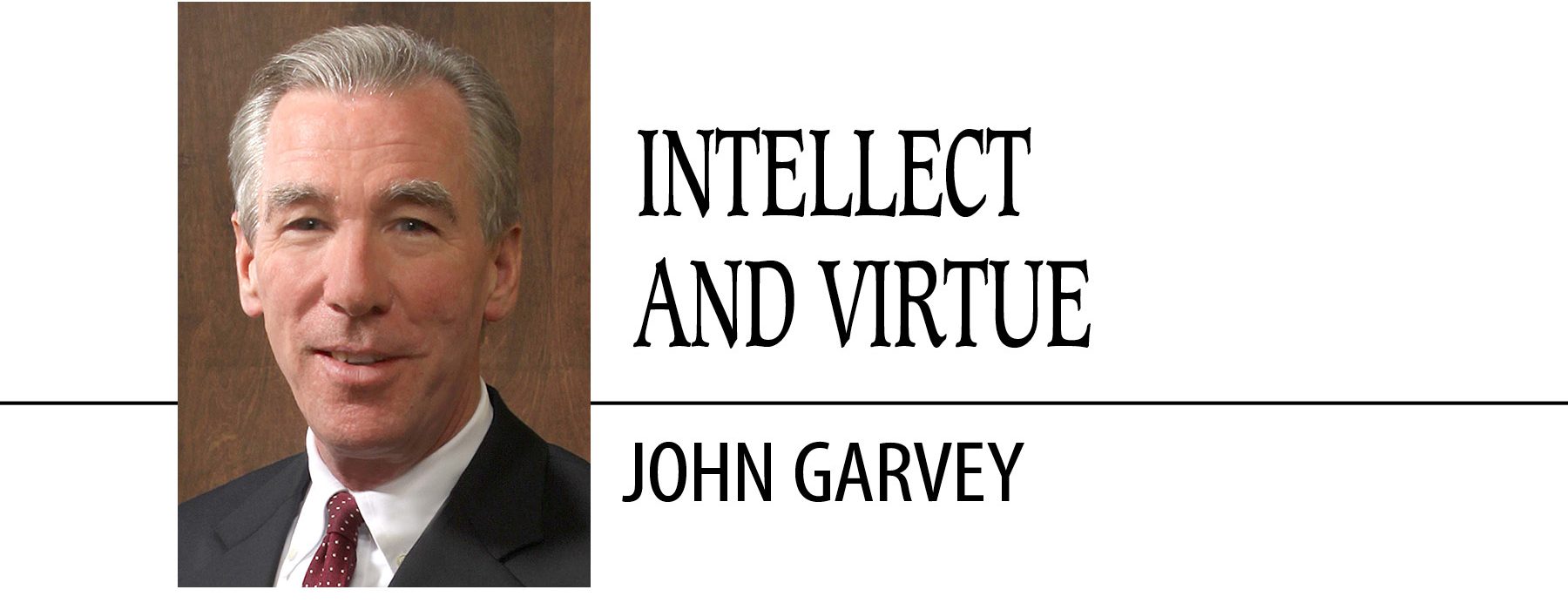June 22, 2021 // Perspective
‘Holy God, We Praise Thy Name’
Every 12 months or so, I’ll remind my wife that I would like the recessional at my funeral to be “Holy God, We Praise Thy Name.” I mentioned this to a friend last week and he said, with some surprise, that he had just had the identical conversation with his wife.
This was probably a coincidence. I doubt that aging men the world around are making the same epicedial plans.
But it got me thinking about why I love the hymn so much. In part it’s because the music is beautiful, as it is with so many old German hymns (“Now Thank We All Our God”; “Praise to the Lord, the Almighty”; “Silent Night”). The English translation by Clarence Walworth is also memorable. It’s mostly words of one syllable, mostly verses of one sentence.
The hymn is a restatement of the “Te Deum,” an early fourth century Christian hymn. It begins with praise to God the Father. It joins our song to the angel choirs, ending, like the “Te Deum,” in the Sanctus (“Holy, holy, holy, Lord”). The version we hear in church concludes with a doxology — “Holy Father, Holy Son, Holy Spirit, three we name thee.”
I am sorry we have traded this for the tunes in the “Glory & Praise” hymnal. I can’t listen to Willard Jabusch’s “The King of Glory” without picturing Stephen Colbert doing a manic liturgical dance. Check it out on YouTube.
My attachment isn’t just about aesthetics, though. I recall first hearing the hymn when I was a boy of about 7. In those days, the Holy Name Society at St. Joseph’s, my family church, adopted it as a kind of anthem. We would sing it on the feast of the holy name and on Sundays when the society sponsored father-son Communion breakfasts.
That was a simpler time, when most Catholics attended church and parochial school and devotional practices were common and public. The Holy Name Society practiced a form of corporate male piety.
My father was not much of a joiner. I think he felt uncomfortable with the enthusiasms of fraternal organizations. But he believed wholeheartedly in the ideals for which the Church and its sodalities stood. He took me to Communion breakfasts not because he relished the company of society members, but because he hoped it would prompt me to make a habit of frequent Communion.
So early on I developed a sentimental attachment to the hymn. And something of my father’s ambition for his children carried over from that early introduction. I see it in the picture I sometimes form of those funeral rites, where I will be the center of attention.
I don’t envision anything very elaborate. They will have to offer free beer if they want to fill the church. But I hope that our children and grandchildren will come, the boys wearing ties. In raising our family, my wife and I had a few rigid rules. We gave way on hair and clothes, even tattoos and piercings. But everyone went to church, no excuses, no exceptions.
That was because the first step on the ladder to heaven is awe at the majesty of God. It is the recognition that His vast domain is infinite, His reign is everlasting; that all creatures on earth claim His scepter; all in heaven above adore Him. Nothing else we do compares in significance to this.
That’s what is so sweet about my dream — that our children might see me off singing “Holy God, We Praise Thy Name.” If that really happens, it will mean we have succeeded in teaching them the most important lesson in life. They will have kept the faith.
John Garvey is president of The Catholic University of America in Washington, D.C.
The best news. Delivered to your inbox.
Subscribe to our mailing list today.






